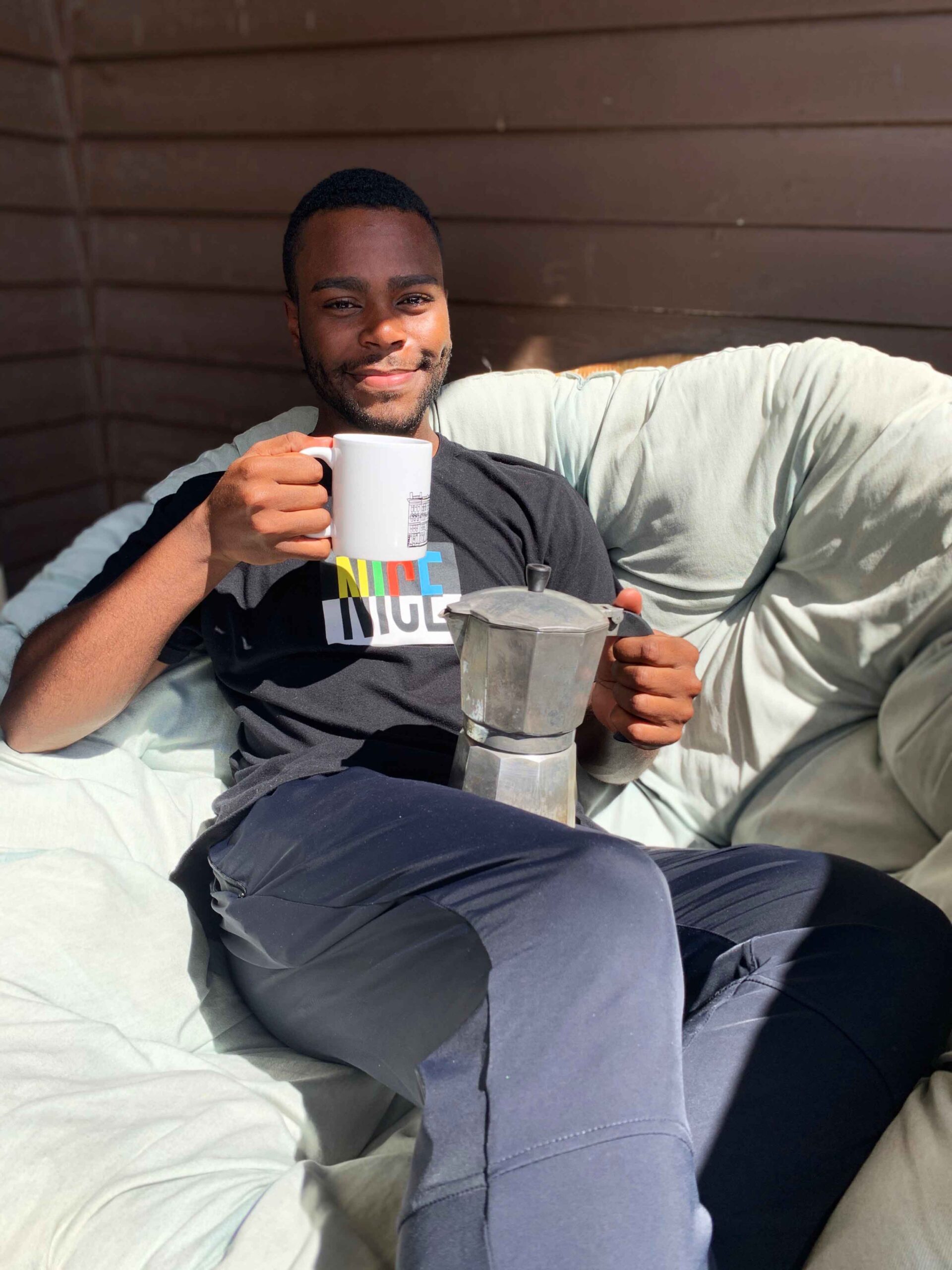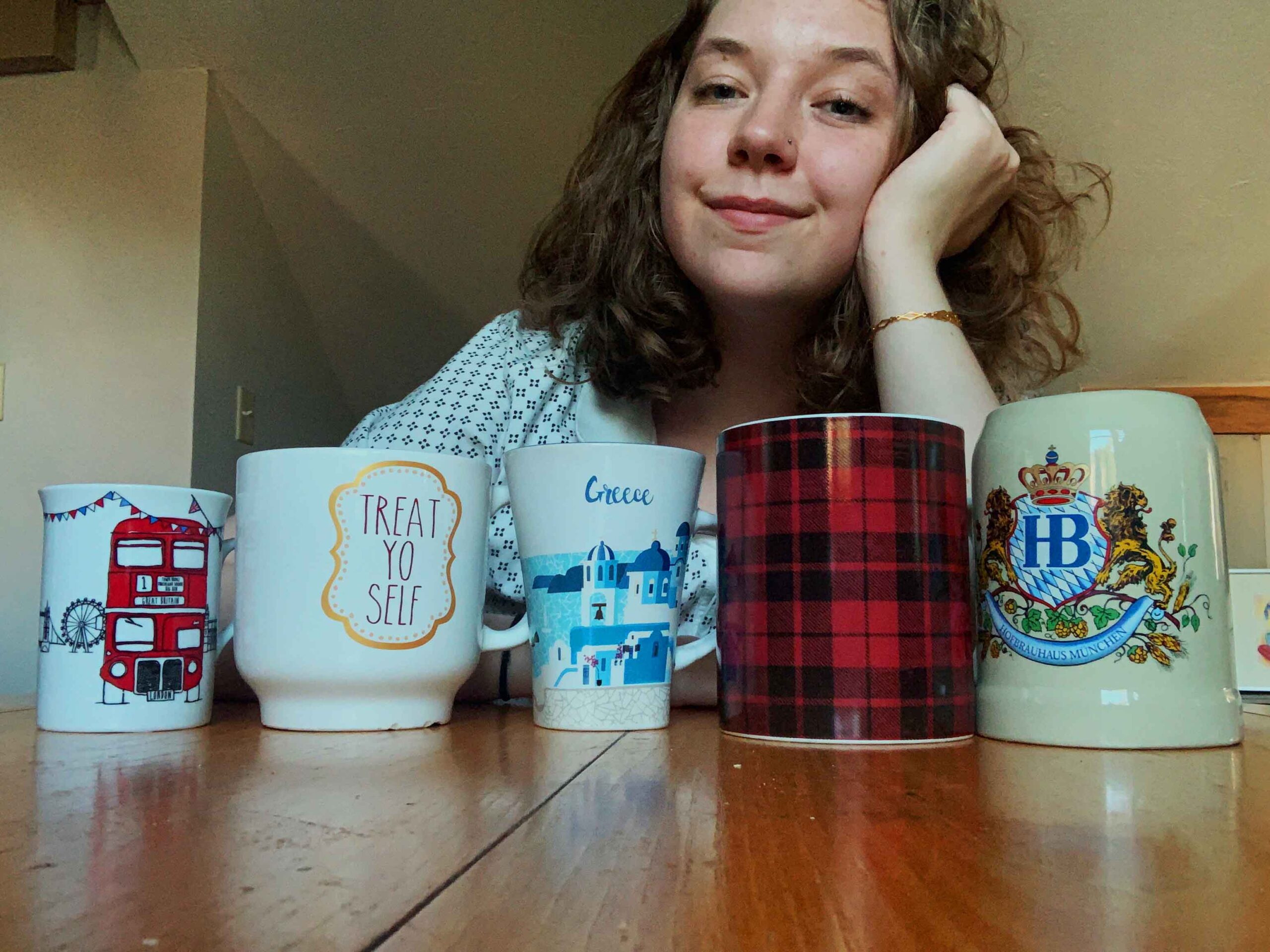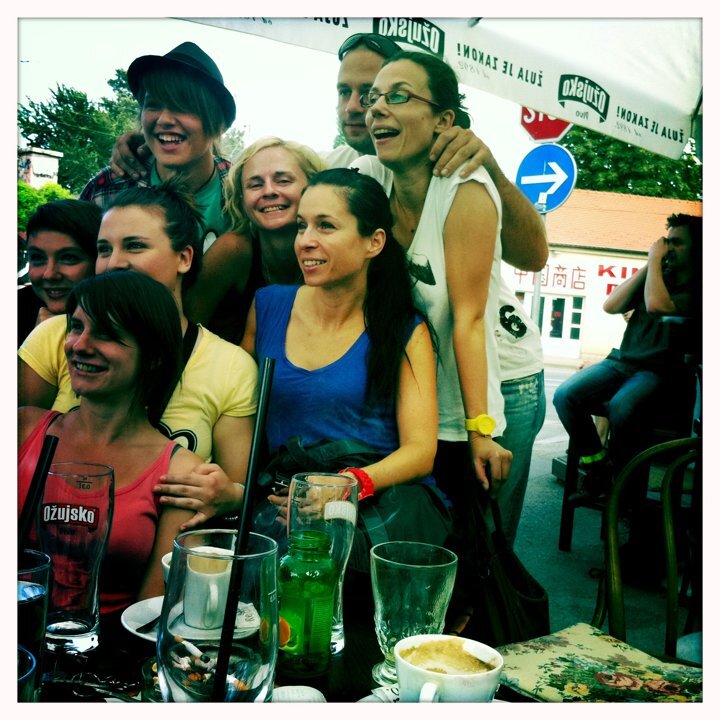I wrote a blog post last week talking about the coffee culture in Ethiopia and, in doing so, it reminded me of a lot of memories I have attached to coffee. In unpacking what coffee means to me, it made me wonder what coffee meant to other people. I started to reach out to my friends and coworkers to find out more about the coffee culture they grew up with. I wanted to understand what coffee symbolizes to them. From the people I reached out to, the stories of Anelyse, Bryan, and Mirka struck a chord with me. They couldn’t be more different in terms of where they are from, yet, in all their stories I saw how a cup of coffee was more than just a drink to them.
Bryan
Bryan never struck me as a coffee enthusiast, so when I asked him passingly about his story with coffee, I felt moved to write about his story. He grew up in Santo Domingo, the capital city of the Dominican Republic. The Dominican Republic is a Caribbean country found on the island of Hispaniola and shares borders with Haiti. In a lot of ways, his story mirrored my memories and culture around coffee. I’ve known Bryan since my first year of University. From his stories of growing up there, images of nights dancing bachata, watching his uncles playing dominoes, relaxing by the beach, and he and his friends playing in his neighborhood is what springs to mind. Yet, as I have come to find out, coffee holds a place close to his heart.
Bryan’s earliest memories of coffee were of it being something reserved for adults. His mother would put a pot of coffee to brew and the strong smell wafting out would draw the attention of his neighbors. His neighbors would come knocking on their door, a cup ready in their hands. He remembers his neighbors sitting with his mother for hours, talking about their day, kids, struggles with life, marriage, and sometimes just to laugh things off after a weary day. Same when visitors came; there was always coffee to be served.
“We have a staple brand of coffee everyone buys: Cafe Santo Domingo. Coffee in the DR is usually served plain and simple: Very strong, sugar and milk! That’s it.—nothing like iced coffee or crazy coffee flavors”, Bryan told me.
In regards to his journey with coffee, he noted, “As I grew up, being offered coffee in the afternoon almost felt like a right of passage. It felt like I was old enough to be considered as one of the adults. I too would get one of the cute mugs and sit with my mom and her friends or family and just talk until sunset. Up to today, the same traditions remain. Now companies even sell coffee in little bags, just for one brew”. I noticed when he was talking about coffee, he highlighted the role it played in both welcoming guests and as a gift. Bryan said, “People invest in their coffee mugs, especially the ones to serve visitors, or when gifting a household, people often purchase the little coffee mugs with the little serving plates”.
I enjoyed hearing about Bryan’s experiences because, in a lot of ways, it was my story also. My earliest memories regarding coffee are of my siblings and cousins and I playing as my parents would sit with the rest of my family drinking coffee. The kids would dart in to grab some popcorn and wonder what the adults could be talking about for so long! We had played three games of tag in the time it had taken them to get through two cups of coffee. But as I got older, I too felt like I went through a rite of passage when my parents would ask if I wanted to come sit with them and have some coffee.

Anelyse
Before studying in Massachusetts, I didn’t understand the fervent coffee culture here, and if Boston’s love for coffee could be personified, my friend Anelyse would be a perfect example. So it only made sense to ask her what her story with coffee was. Ann, as we call her, would always have a cup of coffee on her way to class, in between class and after class. Her love for coffee is so evident to her friends and family that I remember walking into her room and seeing a line of coffee mugs on her desk from people’s gifts over the years. I also remember the day she proudly showed off her new coffee Nescafe machine, happy that she didn’t have to rely on the cafeteria’s coffee anymore.
Ann said her earliest memories of coffee were of her father having his morning cup. As he worked early hours, a cup of coffee in the morning was crucial to him starting his day. “He used to say I don’t care if it’s the worst cup of coffee, I just need my coffee,” Ann told me laughing. Ann didn’t drink coffee until she was in high school. Growing up in Boston, she and her friends would go to Cumberland Farms, where they would be able to get everything from coffee to donuts for a dollar, and from there, her love for coffee only grew. When she started university, she realized coffee was a great way to connect with people.

Mirka
Coming from a country that has a rich culture built around coffee I was excited to learn that there is a huge coffee culture in Croatia. Mirka grew up there and what surprised me is the way family bonding, social life, and even fashion have to do with what coffee symbolizes to her.
Mirka’s earliest memories of coffee are of the smell of coffee consuming her house anytime someone came over to her house or they visited someone else. As a child, she used to look at the adults who always enthusiastically greeted each other with an offer to drink coffee and this is what coffee ended up meaning to her. Coffee meant greetings, and something you drank with people over a long time. She distinctly remembers being bored waiting for her family, even though they had told her they were gonna leave after this cup of coffee, only to watch in shock as they pulled out another cup. The porcelain cups that her family would dote over and would greet guests with is something that is also cemented in her memory. This was similar to Bryan’s story where he said he noticed his family and friends would pour a lot of love into maintaining the coffee sets and would be a way of honoring guests.
Mirka herself also didn’t drink coffee until she was in high school and for her and her friends, it felt like a right of passage into adulthood. Mirka was born and raised in Split and moved to Zagreb to attend university. While she was in high school, she and her friends would sneak into one of the many coffee shops in Split. Mirka and her friends would buy cups of espresso, much needed after a long day in school.
Her favorite memories with coffee are of when she was in University and had just moved to Zagreb. Mirka would dress up with her friends to drink coffee on Saturdays. They have a term in Croatia, “ Špica ” which translates to the best part of the day. It is used to describe Saturday mornings when people would dress up in the trendiest clothes and go grab a cup of coffee. In some instances, the fashion magazines would look to the people at the shops to draw inspiration from. If they had a particularly cool outfit there was a chance they would end up on a section of the newspaper dedicated to going over what people wore. I found this fascinating as it shows how coffee evolved from a drink to a whole lifestyle revolving around social life and fashion.

We all have our own stories and memories with Coffee, whether it was watching your parents having their morning cup or getting dressed up on a Saturday morning, in the hopes that you too can be caught looking fabulous as you had your morning espresso. Coffee incites stories, forges connections and keeps traditions alive.



I’m thoroughly enjoying this series! I love learning about what coffee means to different cultures! It’s amazing what something so many of us take for granted means to our social circles!